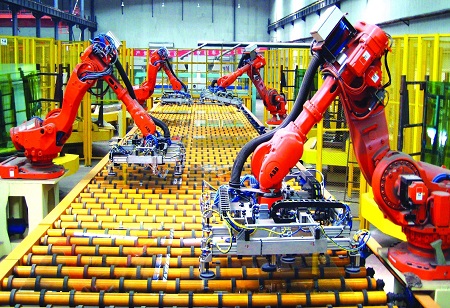Factory automation also known as
Industrial automation is the control of machinery and processes implemented across industries. This is carried out by autonomous systems by leveraging technologies such as robotics and computer software. By implementing automation industries can not only optimize productivity but can also reduce costs, which are related to employees, the benefits, and various other associated expenses while optimizing precision and flexibility.
Today, Robotics plays a significant role in the manufacturing sector. Automated manufacturing solutions should be a central part of any operation which strives for optimal efficiency, safety & competitive advantage in the market. Manufacturing robots not only automate repetitive tasks, but they also help in decreasing margins of error to negligible rates and most importantly empower human workers to focus on more productive areas of the operation.
The
industrial robotics market is anticipated to reach USD 75.3 billion by 2026. Major factors bolstering the growth of this market is owing to the anticipated skilled laborers’ shortage in manufacturing industries and surging demand for cobots (collaborative robots) across industries.
Advantages of using robots in industries
Increased productivity
The industrial revolution gave rise to mechanization, which further helped in bringing cheaper and more goods. Although in general, the mechanical processes in factories were faster and helped in manufacturing large quantities of products, they still required skilled workers. Not only did machines need operators however when errors occurred, it would lead to material wastage, result in production/manufacturing issues and also damage the equipment.
Also, with the arrival of automation, control loops were appended to machine operation and these can be open control loops, which could either facilitate human input or closed loops that are completely automated. Industrial control systems not only help to monitor but also control locally and remotely. With these growing advanced control mechanisms, factories can function twenty-four hours a day.
Flexibility and quality
The recent advancements in automation in industrial manufacturing mainly focuses on flexibility and quality. However, manufacturing flexibility not only facilitates more product types, but it lets consumers order customized products that are automatically manufactured.
